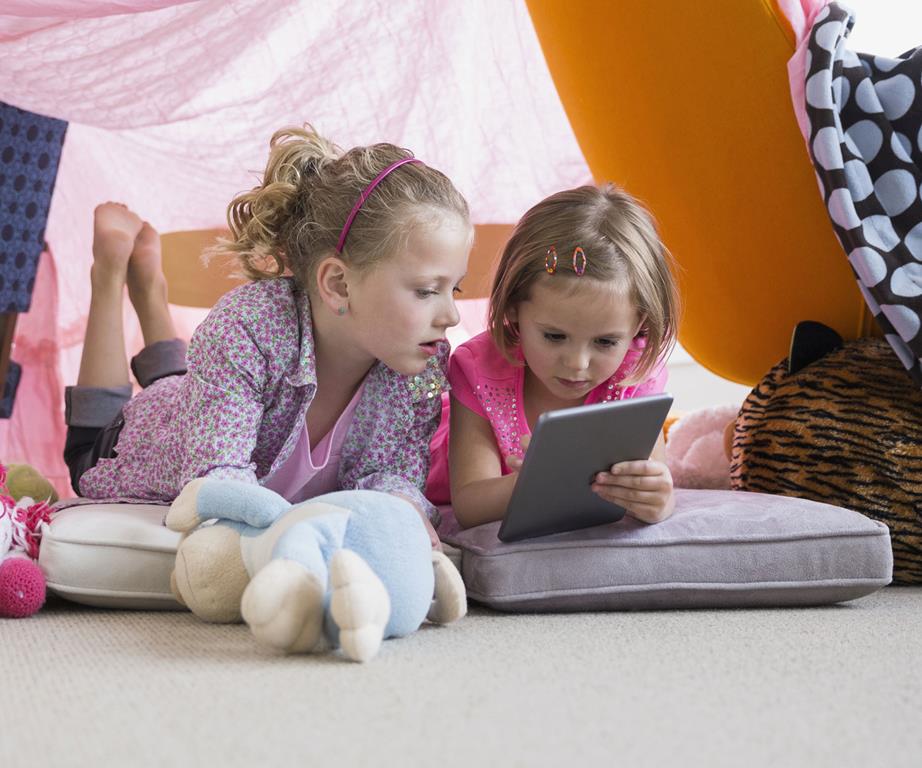Baby TV time: How much TV is healthy for babies?
You might be surprised by these government guidelines.
Many parents would switch on the TV for some entertainment for bub and some time-out for themselves, but did you know Australian guidelines recommend you turn off the box for tots under two?
The Australian Government Department of Health: Inactivity and Screen Time guidelines released in 2017, state babies and kids under two should not spend any time watching TV or DVDs as watching a screen at a young age can seriously affect them.

Turn off the telly for some one-on-one interaction with your bub. (Image: Getty Images.)
The government guidelines reveal that sitting the kids in front of the TV when they’re under the age of two can:
• Limit time for active play and learning
• Reduce opportunities for language development
• Reduce the length of time young kids can stay focused
• Affect the development of the full range of eye movement.
For children who are a little older, aged two to five years, watching television and the use of other electronic media (DVDs, computer and electronic games) should be limited to less than one hour per day. For this age group, evidence suggests that long periods of screen time are connected with:
• Less active, outdoor and creative play
• Slower development of language skills
• Poor social skills
• An increased risk of being overweight.
Post continues after video…
Professor Tony Okely from the University of Wollongong led the research behind the guidelines and believes screen time can be replaced with reading, storytelling and puzzles.
“Screen time while sitting can counteract the health benefits of physical activity, leading to language delays, reduced attention, lower levels of school readiness and poorer decision-making,” Professor Okely said.
“The revised guidelines incorporate the effects of screen time on a child’s growth and development and provide recommendations to parents or carers in how to mitigate these effects through an emphasis on increasing movement, and limiting sedentary behaviour and use of screens.
“When a child is sedentary, try to incorporate quality behaviours such as reading, storytelling, playing with playdough and puzzles into their routine to enhance their cognitive development.”

Too much screen time can have some serious health side-effects. (Image: Getty Images)
When introducing screen time to your child, look for age-appropriate programs that are educational and encourage your little one to sing or dance along to songs or nursery rhymes, helping develop language, literacy and motor skills. Also choose shows that promote positive messages about relationships, families and life, and inspire ideas for the child’s playtime.
Professor Okley advises parents enjoy screen time with their child and make it interactive by “discussing content and using it in ways that help a child make understandings of the world around them, such as to investigate, problem solve, create knowledge.”
According to Raising Children Network, age-appropriate and educational television programs can have the following benefits:
• Encourage creativity
• Teach them problem-solving
• Help develop their communication and social skills
• Stimulate their interest in specific activities.




